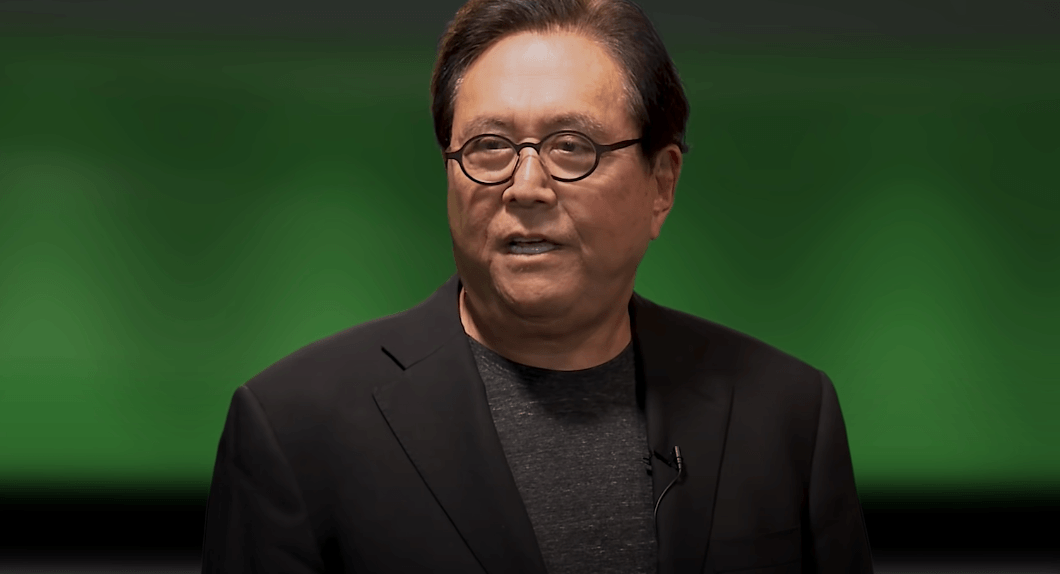Robert Kiyosaki Issues Another Major Warning on the U.S. Dollar Instability
15.10.2024 8:30 2 min. read Kosta Gushterov
Robert Kiyosaki recently expressed concerns about the U.S. dollar's stability, attributing its current state to decisions made decades ago.
He specifically pointed to President Nixon’s 1971 decision to end the dollar’s gold backing as a key factor.
Kiyosaki argues that since the U.S. dollar was decoupled from gold, it has relied on government bonds and treasuries, which he views as “fake money.” He believes this shift has had significant long-term impacts on the economy. Before 1971, the dollar’s value was tied to gold, providing a stable benchmark, but Nixon’s move transformed it into a fiat currency, leaving its value dependent on market sentiment and government debt.
Kiyosaki has criticized this change, stating that it further eroded the dollar’s value and increased reliance on government-issued debt. He considers this a pivotal moment, noting that the Federal Reserve’s money printing to manage debt has further diminished the dollar’s purchasing power, leading to inflation and rising costs for goods and services.
READ MORE:

How Do Bitcoin’s Gains Compare to S&P500?
He also argues that traditional savings are becoming riskier due to inflation, as the increasing prices reduce the dollar’s purchasing power over time. Kiyosaki suggests that conventional savings accounts are no longer effective for preserving wealth in this economic environment.
To combat this, he advises investors to explore alternative assets like gold, silver, and Bitcoin, which he believes are more resilient against inflation. He noted that gold’s recent record highs demonstrate its ability to maintain value during economic uncertainty, while cryptocurrencies like Bitcoin are also considered protective against inflation. Kiyosaki recommends diversifying investments across precious metals and digital assets to safeguard against economic instability.
-
1
El Salvador Defies IMF Again, Keeps Buying Bitcoin Despite Loan Conditions
28.05.2025 18:00 1 min. read -
2
Tether Reaffirms Global Strategy as U.S. Stablecoin Bill Advances
27.05.2025 9:00 1 min. read -
3
Tether Becomes Major U.S. Investor With Billions in Strategic Allocations
27.05.2025 21:00 1 min. read -
4
Shibarium Launches Internal Probe Amid Ecosystem Abuse Allegations
01.06.2025 18:00 2 min. read -
5
Why Today’s AI Still Doesn’t Think Like Us, According to Meta’s Chief Scientist
28.05.2025 8:00 2 min. read
Tencent Denies Reports of Nexon Acquisition Talks
Chinese tech giant Tencent has officially pushed back against recent rumors suggesting it is preparing to acquire South Korean game developer Nexon.
FTX Dumps Another $10M in Solana as Wind-Down Efforts Press On
The slow dismantling of Sam Bankman-Fried’s crypto empire continues, with defunct firms FTX and Alameda Research quietly shifting another $10.3 million in Solana (SOL) as part of their asset liquidation plan.
Gold Glides Toward New Peaks as Middle-East Strife Lifts Safe-Haven Demand
Gold’s relentless climb in 2025 shows no sign of slowing. Spot prices burst above $3,400 this week—within striking distance of April’s record near $3,500—after renewed hostilities in the Middle East rattled global markets.
Trump Turns 79 With Billions in Crypto and a $45M Parade
Washington is gearing up for a grand $45 million military parade on June 14, 2025, marking two milestones: the U.S. Army’s 250th anniversary and Donald Trump’s 79th birthday.
-
1
El Salvador Defies IMF Again, Keeps Buying Bitcoin Despite Loan Conditions
28.05.2025 18:00 1 min. read -
2
Tether Reaffirms Global Strategy as U.S. Stablecoin Bill Advances
27.05.2025 9:00 1 min. read -
3
Tether Becomes Major U.S. Investor With Billions in Strategic Allocations
27.05.2025 21:00 1 min. read -
4
Shibarium Launches Internal Probe Amid Ecosystem Abuse Allegations
01.06.2025 18:00 2 min. read -
5
Why Today’s AI Still Doesn’t Think Like Us, According to Meta’s Chief Scientist
28.05.2025 8:00 2 min. read

